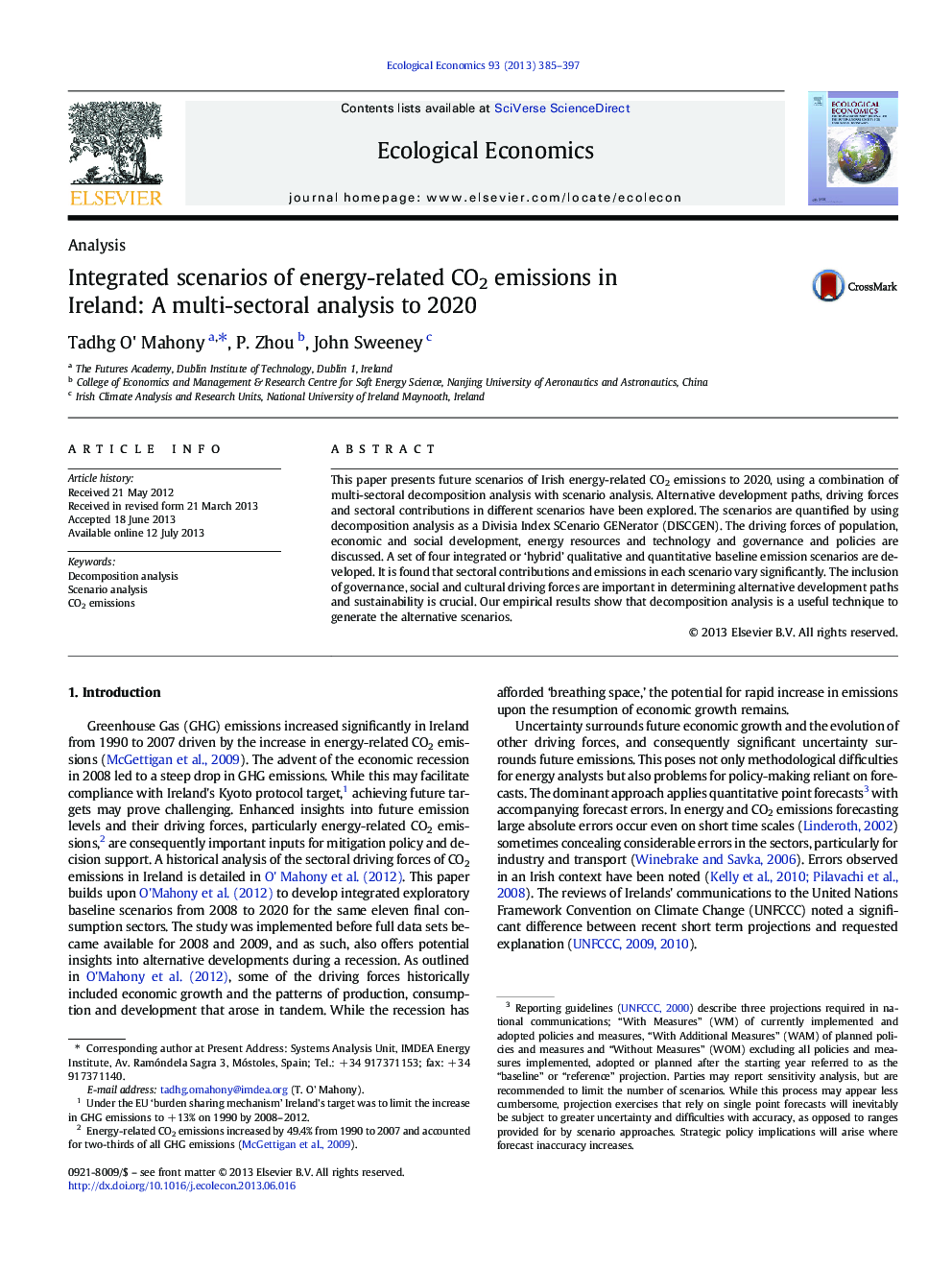| کد مقاله | کد نشریه | سال انتشار | مقاله انگلیسی | نسخه تمام متن |
|---|---|---|---|---|
| 5049964 | 1476386 | 2013 | 13 صفحه PDF | دانلود رایگان |

- Combines decomposition analysis and scenario analysis for scenarios to 2020.
- Scenario driving forces vary in each development pathway.
- Sectoral contribution to total emissions different in each scenario.
- Significant difference in total CO2 emissions results.
- Governance, society and culture important in outcomes and sustainability crucial.
This paper presents future scenarios of Irish energy-related CO2 emissions to 2020, using a combination of multi-sectoral decomposition analysis with scenario analysis. Alternative development paths, driving forces and sectoral contributions in different scenarios have been explored. The scenarios are quantified by using decomposition analysis as a Divisia Index SCenario GENerator (DISCGEN). The driving forces of population, economic and social development, energy resources and technology and governance and policies are discussed. A set of four integrated or 'hybrid' qualitative and quantitative baseline emission scenarios are developed. It is found that sectoral contributions and emissions in each scenario vary significantly. The inclusion of governance, social and cultural driving forces are important in determining alternative development paths and sustainability is crucial. Our empirical results show that decomposition analysis is a useful technique to generate the alternative scenarios.
Journal: Ecological Economics - Volume 93, September 2013, Pages 385-397